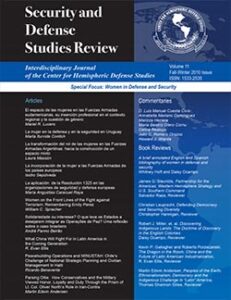More than two decades after Oliver North's role in the Iran-Contra affair exploded into public view as part of one of the most important political scandals in the United States in the latter half of the twentieth century, the imbroglio continues to offer critical insights into contemporary debates about foreign policy mechanisms and the role of the military. North's responsibility as an individual, combined with certain institutional enablers that flourished within the Reagan Administration's conduct of foreign policy, resulted in an inexorable bifurcation between the traditional ethos of the U.S. armed forces and the foreign policy aims and practices of a conservative administration, despite their sometimes conflation in the popular mind. This paper will explore the tensions between institutional versus political conservatism, as well as those institutional practices, that facilitated North's shift away from the instincts and training of the military sphere to that of a lone-wolf activism.

